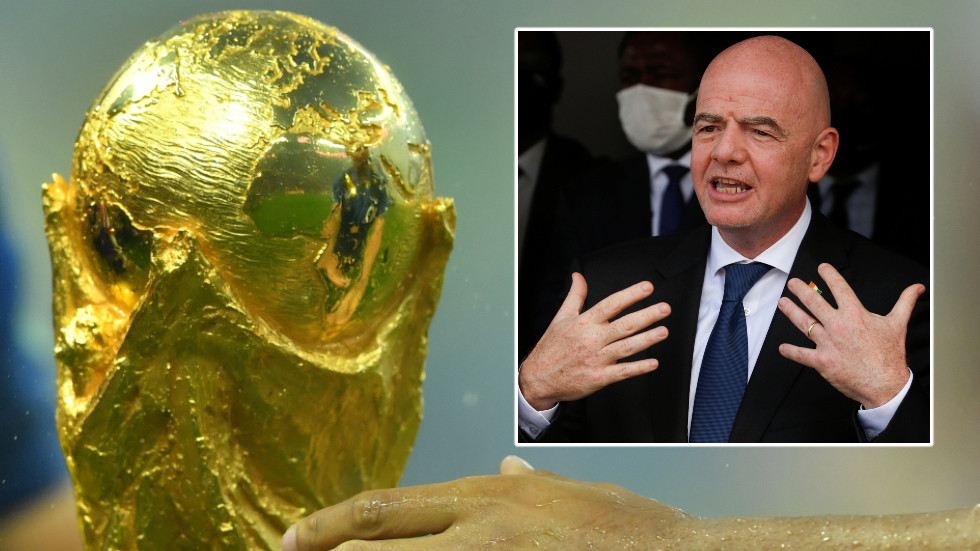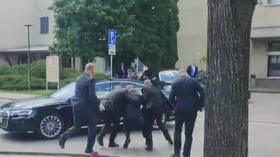As football fans laugh at the thought of a FIFA World Cup every two years, will European Super League-style doomed ideas ever end?

Just when the failed European Super League seemed to have missed out on fatally damaging the reputation of elite football, a World Cup every two years has become a new topic of derision. Fans and players deserve better than this.
After almost 72 years of the World Cup taking place quadrennially – adding another 20 on top, if you include the two editions lost to World War II – it would be complacent to assume that a seemingly untouchable sequence should proceed without being needlessly examined.
The four-year cycle is a long time for football fans. That is as indisputable as it is symbolic of how much supporters cherish the month-long football festival when the World Cup is on. No feasibility studies of the kind sugggested by FIFA this week, put forward by Saudi Arabia at a congress, are required to conclude that it is worth every minute of the wait and a timespan that no one who cares about the sport would wish to curtail.
Do they think players are robots??
— Sarthak (@thisArsenalweek) May 22, 2021
Amid the collateral damage of the European Super League (ESL) being mauled by fans, you might hope that football's guardians would think twice before putting forward more radical thinking that appears to be less ignorant of the way audiences feel, more laser-crafted to resemble the polar opposite of the desires held by the people who ultimately make the game the commodity that some clearly see it as.
The ESL was an embarrassment partly because of how little understanding it betrayed from those behind it. The disconnect between investors and customers, if we must call the relationship that, was a damning indictment of the drought of discerment held by many of those at the top of the game about where the line lies between the boundaries of evolution and self-destruction.
Shouldn’t fans get a vote on stuff like this? Talk about ESL ruining football it’s decisions like this and VAR that have a big impact on that fans game.
— The Adored Devils (@theadoreddevils) May 22, 2021
This would really be the end. Do any of these people understand the principle of devaluation? They have a near-sacred trust to maintain this magnificent concept: The Workd Cup. But they’ll run it into the ground to pursue money.
— Ben Aitkenhead (@AitkenheadBen) May 22, 2021
For football now, as the saying might go in the most cringeworthy of business meetings, no idea seems too far-fetched. Fans who once questioned awful goal music replacing the cheers of supporters or matches taking place every day of the week now resemble quaintly naive complainants aiming a paper aeroplane at an unstoppable commercial machine.
Supporters are people, too – some of them even daring to have brains and business sense. Change is inevitable, as the older guard so witheringly said to have been referred to as "legacy fans" by the ESL project know as much as anyone.
Yet another money making racket by FIFA. Talk about diluting the World Cup
— Norfolknchance V 2.0 (@DavidWa98974961) May 22, 2021
The World Cup is the absolute pinnacle of world sport. It is the only genuinely truly global sporting event. It should be cherished and preserved rather than diluted.
— Britannia Sui Iuris (@ENG2Stars1Day) May 22, 2021
FIFA says it wants "fewer yet more meaningful competitive national team matches". So do fans, as the success of the Nations League has shown.
Those longer-standing supporters have already had their loyalty tested by a procession of contentious game-changers, from matches they cannot realistically travel to at the behest of television scheduling to a World Cup taking place in an entirely different season that is logistically onerous to attend. It is patronizing at best to conjecture that newer fans do not feel similarly.
Nooooooooooo Total devaluation and fixture nightmare! Not to mention, these players aren’t robots!! Where is the duty of care here? Yet again all



